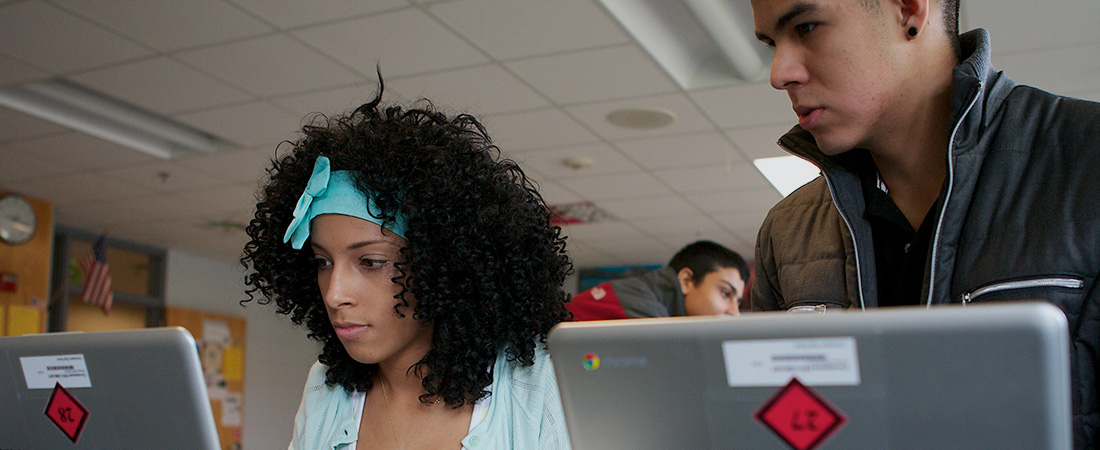
STEM skills—from computer programming to bioengineering—are the bedrock of the 21st century economy.
Not all students have a high-quality STEM education, which can limit their post-secondary learning and career options. EDC works to improve the quality, effectiveness, and equity of STEM learning and teaching, giving all students a solid foundation in computer science and creating pathways to STEM careers for students from underrepresented groups, students from low-income families, and English learners.
We develop STEM curricula, digital games, and apps that engage, excite, and challenge students, aiming to foster and use technology for robust STEM experiences. And through national resource centers and collaborative research, we guide STEM research and program design.
Learn about EDC’s work with Family STEM Communities.
Related Content
Tackling Inequity in the Mathematics Classroom
EDC’s Babette Moeller and Matt McLeod discuss their efforts to make mathematics teaching more equitable.
EDC Talks: STEM Education in Rural Schools
In this video, Pam Buffington discusses how to enrich STEM learning in rural communities.
A New Language for Mathematics
Young children often struggle to write down their mathematical ideas. Could computer programming be an easier language for them?
EDC Talks: Making Time for Family Math
What are some fun, easy activities that families can do to encourage math learning at home? (Hint: You are probably already doing some of them.)
Tapping, Swiping, and Learning Science
Research findings on The Cat in the Hat Knows a Lot About That!™ have implications for parents, educators, and educational media developers.
Projects
Resources
Here are a few of our resources on STEM. To see more, visit our Resources section.
Math for All is a multi-media mathematics professional development resource for general and special education teachers.
Written for program directors, program managers, educators, and others responsible for developing and implementing STEM programs in schools and community-based organizations, this guide seeks to re
EDC’s Biology: Concepts and Practices, a yearlong high school course curriculum, fosters grade 9–12 students’ scientific and data literacy; builds their reading, writing, and oral communic
This robust website includes video-based case studies of six girls as they investigate what it means to be a scientist or engineer.
This suite of research briefs created by EDC supports research-based implementation of 1-to-1 mobile tablet initiatives in elementary classrooms.
This resource library contains reports, evaluations, and toolkits produced by Community for Advancing Discovery Research in Education (CADRE) partners and principal investigators with DR K–12 grant
Math for All is a multimedia mathematics professional development resource for general and special education teachers.
The Real World, Real Science curriculum blends climate science and data science to support students in learning about the environment.
As part of the 2015–2020 Ready To Learn Initiative, the Corporation for Public Broadcasting (CPB) and the Public Broadcasting Service (PBS) devised a new model of community partnerships called Comm
This factsheet describes the work of the USAID-Lower Mekong Initiative Conecting the Mekong through Education and Training (USAID-LMI COMET) project to narrow the devleopment gap in Southeast Asia throught the MekongSkills2WorkNetwork.